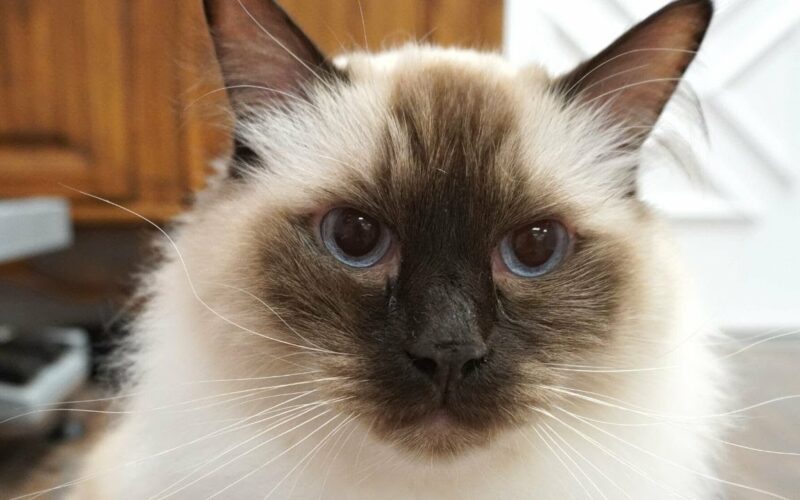If you’re considering adding a feline companion, the Ragdoll cat is undoubtedly a breed worth considering. Known for their affectionate nature, stunning blue eyes, and luxurious coats, Ragdolls have quickly become one of the most popular breeds of cats around the world.
However, before you adopt a Ragdoll cat, it’s essential to weigh the pros and cons. In this article, we’ll explore the benefits and drawbacks of owning a Ragdoll, so you can make an informed decision before bringing one into your home.
Whether you’re a seasoned cat owner or new to the world of feline companionship, it’s always wise to do your research before making a decision that will impact your life and the life of your new furry friend.
So, without further ado, let’s dive into the Ragdoll cat’s pros and cons to help you determine if this breed is the right fit for you.
Pros:
PRO #1 – Ragdoll Cats Are Friendly
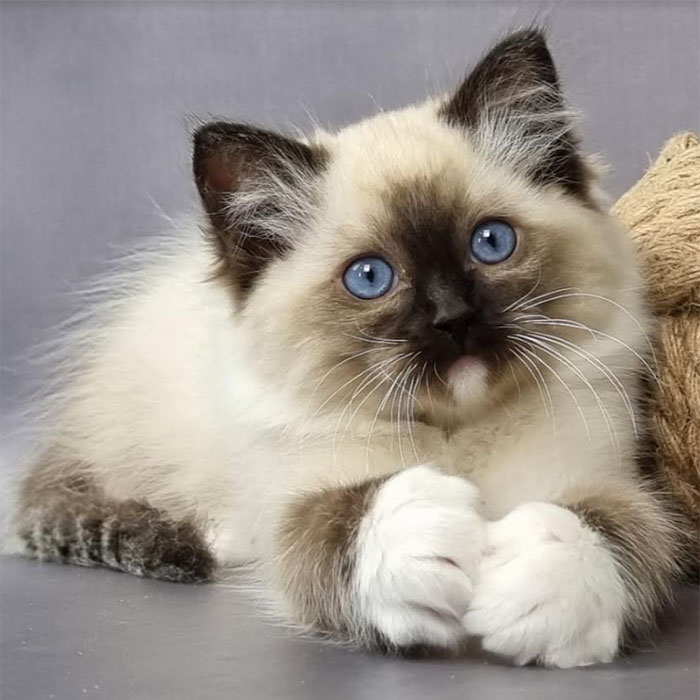
Ragdoll cats love people. They love hugging and petting their owners. Friendly and cuddly Ragdoll cats make terrific pets. These cats are very gregarious and love their owners. They love people and often follow their owners around the house, eager to help.
Ragdoll cats are also laid-back, making them ideal for homes with children or other pets. They’re compassionate and patient with kids. Ragdoll cats even like children, making them perfect family pets.
Ragdoll cats love cuddling. They love to cuddle with their owners and spend hours on laps. Their fluffy coats and quiet demeanor make them ideal lap cats.
PRO #2 – Ragdoll Cats Are Laid-back
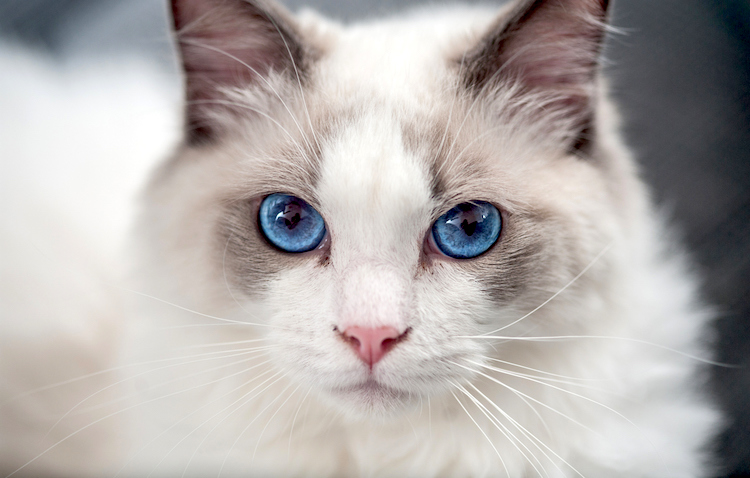
Ragdoll cats are easygoing and suitable for homes with kids and other pets. They rarely fight or misbehave. Ragdolls are known for their calmness. They are calm and unruffled. They’re ideal for families with kids and pets. Ragdoll cats are quiet and friendly, making them great household pets.
Their laid-back demeanor makes them less prone to fight or cause trouble. They enjoy sunbathing or snuggling on laps. This is ideal for noisy families. Ragdoll cats can adjust to any setting.
For example, Ragdoll cats are friendly and patient with children. They tolerate hard play and won’t scratch, making them ideal for kids. They also get along with dogs and other pets. Ragdoll cats are great for any family because of their laid-back temperament.
PRO #3 – Ragdoll Cats Are Low-shedding
Ragdoll cats are suitable for allergy sufferers and those who don’t want to deal with excessive shedding due to their semi-long coats. Ragdoll cats are amiable, laid-back, and low-shedding, making them ideal for persons with allergies or who don’t want to deal with excessive shedding.
Its semi-long coat doesn’t require daily grooming or regular groomer visits. This is fantastic news for busy people who hate cleaning cat fur from every corner of their house. Low-shedding cats are less likely to get hairballs, which is another benefit. Cats can get stomach problems and expensive vet costs from hairballs. Ragdoll cats don’t have this problem.
Low-shedding cats require less time sweeping and cleaning furnishings and clothes. Low-maintenance pet owners will like this. A ragdoll cat gives you all the benefits of a fluffy cat without the bother of hair everywhere.
PRO #4 – Ragdoll Cats Are Playful
Ragdoll cats are playful despite their laid-back attitude. They’re fun since they’re exciting and active. Ragdoll cats’ calm temperament doesn’t imply they can’t have fun! These kitties love exploring and playing. They like to fetch, chase, and solve puzzles.
Playing with your Ragdoll cat helps you bond and stimulates them. Try different toys and activities to determine what your cat enjoys and incorporate play into your everyday routine. You’ll see your cat’s amusing behaviors and playful personalities as they appreciate the attention.
Ragdoll cats are energetic but require rest. While not playing, please provide them with a comfy bed or perch. Ragdoll cats are pleasant and entertaining pets.
PRO #5 – Ragdoll Cats Are Pet-friendly
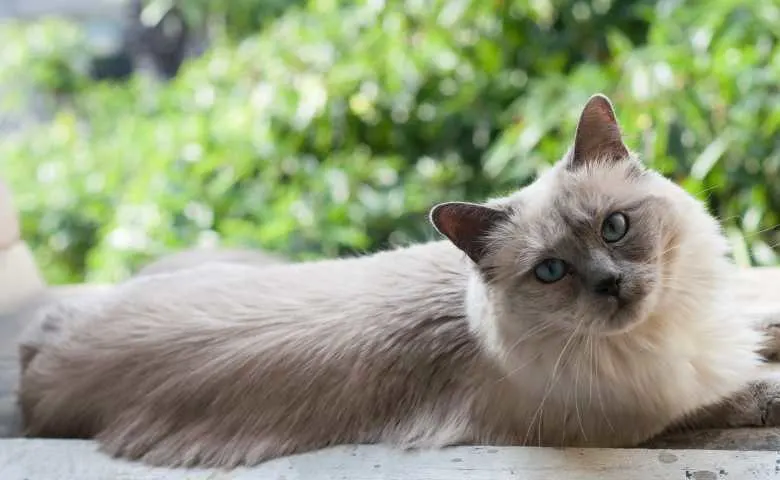
Ragdoll cats get along with dogs and other cats. Social animals. They love having company. Ragdoll cats are quiet and friendly, making them good companions for multi-pet households. Ragdolls get along with dogs, cats, and birds.
Ragdoll cats like people and other pets. They are kind and patient, making them good pets. Your Ragdoll may like playing or lounging with your dog. Your Ragdoll may also get along with other cats.
As with any pet, you should progressively expose your Ragdoll to other animals, mainly if they’re violent or not used to other cats. With patience and direction, your Ragdoll can become a loved and harmonious part of your multi-pet household.
PRO #6 – Ragdoll Cats Are Adaptable
Ragdoll cats can live in apartments or larger homes. They can fit in anywhere. Ragdoll cats adapt to any living scenario. They feel at home in a small apartment or a large house with lots of space. They can adapt to diverse living conditions since they are easygoing and adaptable. They’re ideal for frequent movers or people who need to move for a job.
Ragdoll cats are lovely if you live in a small apartment and worry about your cat being crowded. They adapt well to tight areas and will enjoy sitting with you in your modest living room. If you have a larger home, a Ragdoll cat will love exploring all the nooks and crannies and may even claim some as their own.
Ragdoll cats can adapt to many living environments. Anyone seeking a laid-back, adaptable cat should consider them.
PRO #7 – Ragdoll Cats Have Easy-to-Groom Coats
Ragdoll cats require weekly brushing. They don’t mat, making grooming easy. Ragdoll cats have easy-to-groom coats. Ragdolls don’t have an undercoat; thus, they don’t need brushing. Their fur only needs weekly brushing. Their it sheds less, requiring less vacuuming and sweeping.
Ragdoll cats also groom themselves. They regularly groom themselves. Owners can bathe or groom them without having to wash or groom them.
Grooming lets Ragdoll owners bond. Ragdoll cats usually like grooming and purring. This bonding action improves their coat and strengthens the cat-owner relationship.
PRO #8 – Ragdoll Cats Are Intelligent
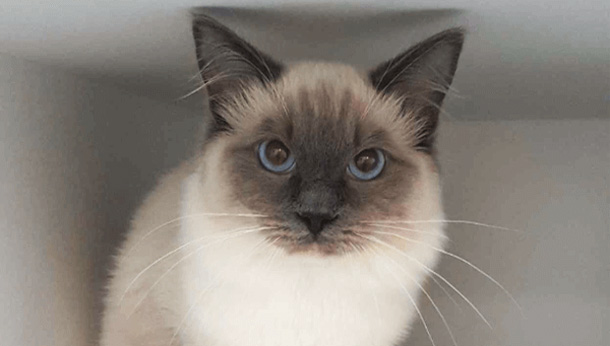
Ragdoll cats learn tricks and commands. They appreciate puzzles and are strong problem solvers. Ragdoll cats are clever and adorable!
These intelligent cats are easy to train and teach tricks. They learn “come,” “sit,” and “stay” rapidly. They’re good at solving problems and getting what they want. Ragdoll cats may learn to open cabinets to bring their favorite snacks and toys.
Ragdoll cats love puzzles and interactive toys because of their intellect. Puzzle feeders can occupy them for hours. Chasing, hiding, and stalking give mental and physical activity to these cats.
Cons:
CON #1 – Ragdoll Cats Are High-Maintenance
Ragdoll cats need special grooming to maintain their coats healthy and lustrous. They need frequent nail clipping and ear cleaning.
To avoid matting and tangling, Ragdoll cats need frequent grooming. Brushing their coat twice a week keeps it healthy and lustrous. Regular grooming prevents painful matting and skin irritations in cats.
Nail trimming and ear washing are also high maintenance. Earwax buildup in Ragdoll cats must be cleansed periodically to prevent infections. To avoid scratching furniture or others and harming themselves, trim their nails.
CON #2 – Ragdoll Cats Are Expensive
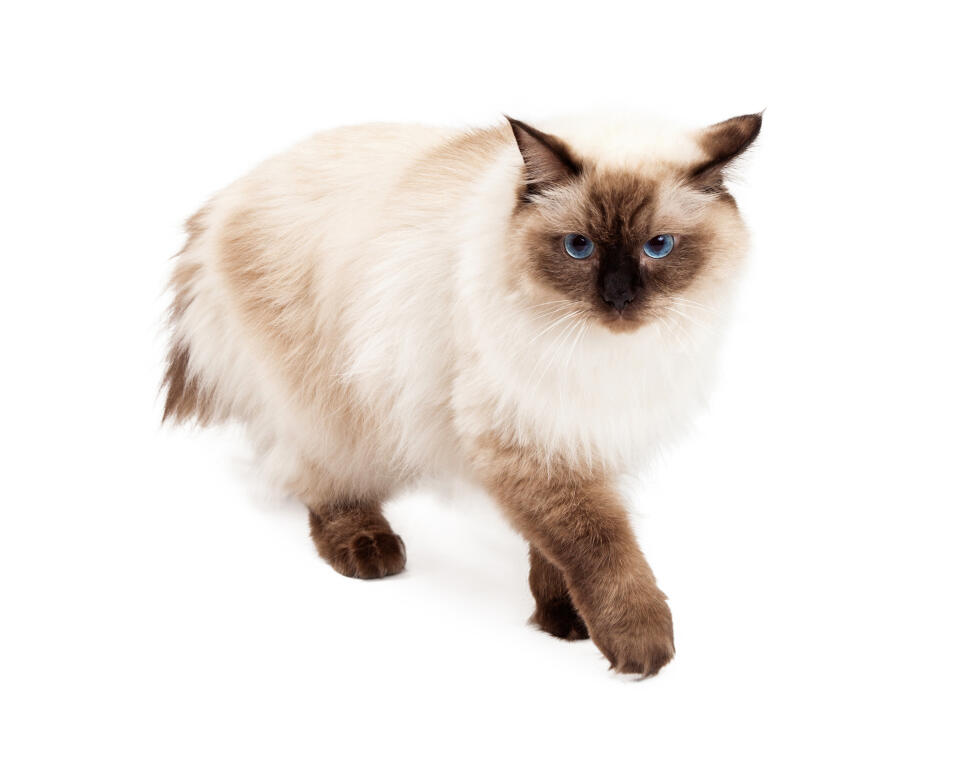
Ragdoll cats are costly to buy and expensive to treat. They may need veterinarian attention. A Ragdoll cat from a breeder can be pricey.
Depending on the breeder’s reputation and the cat’s pedigree, Ragdoll kittens cost $500–2,500. Ragdoll cats are prone to hypertrophic cardiomyopathy and bladder stones, which can increase their medical bills.
Although not all Ragdoll cats suffer these health difficulties, knowing the potential costs of caring for one is essential. To maintain their coats, Ragdoll cats need high-quality food and grooming supplies.
CON #3 – Ragdoll Cats Require Lots of Attention
Ragdoll cats are social animals. Long-term isolation may cause depression or anxiety. Ragdoll cats are social and affectionate. They like hugging and being petted. They need attention and can grow anxious or unhappy if left alone.
Ragdoll cats may only be suitable for some people. Kids need attention to stay mentally occupied and happy. Neglecting their social needs can lead to destructive behavior, including scratching furniture, excessive meowing, and attention-seeking.
Playtime, affection, and attention should be given to Ragdoll cats. Routines and regular stimulation and interaction are vital. Playing with them, giving them interactive toys, or getting another pet may help. Ragdoll cats may be happy and affectionate pets with proper care.
CON #4 – Ragdoll Cats Are Huge
Ragdoll cats can get big, which may only work for some. They eat more and need a giant litter box. Ragdolls weigh 10–20 pounds.
Their size can be a drawback for owners who prefer smaller pets or live in limited quarters despite their cuddliness. Because of their size, they need a larger litter box and may eat more than other cats, which can boost costs. Some owners may struggle to carry or handle a large Ragdoll cat, especially if they have health issues.
Before adopting, Ragdoll cat owners should examine their size and weight, which might affect their living situation, economics, and pet care.
CON #5 – Ragdoll Cats Sheds
Ragdoll cats have a low-shedding coats. However, during shedding seasons, they may need additional grooming. Ragdoll cats shed like other animals, although their semi-long fur sheds less.
To avoid shedding, groom them regularly. To prevent hair on your furniture and clothes during shedding seasons, brush them more often. Before adopting a Ragdoll cat, know its care needs. Their low-maintenance coat makes shedding easier than other breeds.
If your Ragdoll cat sheds more than usual, see a vet to rule out any health issues. Ragdolls are a fantastic choice for a low-shedding cat, but they need regular grooming to stay healthy and happy.
CON #6 – Ragdoll Cats Have Sensitive Stomachs
Poor diets might cause Ragdoll cats to vomit or have diarrhea. Ragdoll cats’ delicate stomachs may cause gastric disorders if their nutrition isn’t regulated. Ragdoll cats with food allergies or intolerances may need a special diet to stay healthy. Look for indicators of digestive disorders, including vomiting, diarrhea, or lack of appetite, in your cat’s feeding patterns.
Changing the cat’s food or feeding them more often may fix the problem. Owners may need to work with their vet to diagnose and treat stomach disorders. Feeding Ragdoll cats a nutritious, balanced food can help prevent digestive issues.
Feeding your cat table scraps or human food might upset their stomachs and cause gastric difficulties. Owners can keep their Ragdoll cats healthy by monitoring their nutrition and health.
CON #7 – Ragdoll Cats Can Be Clingy
Ragdoll cats can be cuddly but also needy. If neglected, they may stalk and meow. Ragdoll cats are affectionate, but their clinginess may not suit everyone.
Cats love attention and may follow their owners around the house and meow if they feel neglected. Some pet owners love the attention, but others, especially those with busy schedules or independent pets, find it overwhelming.
Early routines with the cat can help reduce clinginess. Toys and a comfy spot can also keep them busy while their owners are away. Ragdoll cats need attention and shouldn’t be left alone. If a Ragdoll cat owner cannot give it the attention it needs, it may choose to purchase another pet or a different breed.
CON #8 – Ragdoll Cats May Have Health issues
Ragdoll cats are generally healthy, but like any cats, they might have health difficulties. A reliable breeder who checks cats for genetic health concerns is essential. Ragdoll cats may develop life-threatening hypertrophic cardiomyopathy (HCM. This disorder thickens heart walls, causing heart failure. A reputable Ragdoll breeder should check their cats for HCM and other genetic health concerns.
Urinary tract, teeth, and obesity are some Ragdoll cat health issues. Vet visits prevent and treat these disorders. Ragdoll cats may need specific diets or supplements to stay healthy.
When adopting a cat, consider its health risks. Proper care and frequent veterinary visits can help Ragdoll cats live long, healthy lives.
Final Thoughts
In conclusion, owning a Ragdoll cat can be a rewarding and enjoyable experience, but it’s essential to consider both the pros and cons before deciding. Ragdoll cats are known for their affectionate and docile nature, making them great companions for families with children and seniors. They are also relatively low maintenance and have a unique and stunning appearance.
However, Ragdoll cats can be prone to health issues and require regular grooming to maintain their long, fluffy coats. They can also be susceptible to weight gain if their diet is not closely monitored. Additionally, Ragdolls are not the best choice for those who prefer an independent pet, as they crave attention and may suffer separation anxiety.
Overall, owning a Ragdoll cat can bring love, joy, and entertainment into your life, but it’s essential to carefully consider your lifestyle and expectations before bringing one into your home. If you’re willing to invest the time, effort, and love that a Ragdoll requires, then adopting one can be an excellent decision you won’t regret. So, adopt a Ragdoll cat if you’re ready for a loyal and affectionate feline friend!
Further Reading
